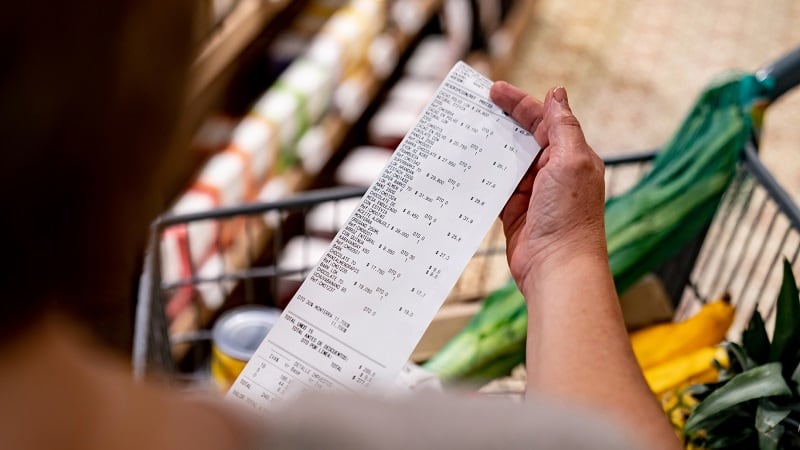The trade association has made the call as the latest overall inflation rates were slightly lower than expected at 3.8%.
On a monthly basis, food and non-alcoholic drink prices fell by 0.2% in September 2025.
The year-on-year food and non-alcoholic drink inflation slowed to 4.5% in September, down from 5.1% in August. This was the first time since March 2025 that the annual rate has slowed.
The ONS stats reported on 49 main food and non-alcoholic drink product categories, with five categories seeing inflation in double digits: beef and veal (26.9%), chocolate (18.1%), butter (17.5), coffee (13.4%), and whole milk (12.0%).
This backs up stats from the Energy and Climate Intelligence Unit which said that food such as beef, butter, chocolate, coffee and milk were pushing up inflation.
While ONS stats showed that prices fell the fastest for: olive oil (-15.4%), flours (-6.2%), sugar (-3.9%), frozen seafood (-3.2%) and pasta (-2.6%).
However, despite the overall fall the FDF said it was concerned about the rising prices, which were impacting on manufacturing productivity.
Balwinder Dhoot, director of Growth and Sustainability, FDF, said: “While food and drink inflation fell in September, food and drink prices are rising at a rate which is still significantly above average.”
Dhoot said while the FDF welcomed the Chancellor’s recent announcement to reduce regulatory burdens on businesses it wants to see it put into practice quickly to help hard-pressed shoppers.
“We also need a long-term plan to turbocharge productivity and build resilience in the food sector, rather than short term fixes. Government can do this by supporting the transition to higher skilled jobs, promoting British food brands abroad, and creating a regulatory environment that gives manufacturers the confidence to invest in the UK and benefit shoppers,” Dhoot added.
The FDF also welcomed the Governments plans to streamline and improve technical and training routes. The Government announced this week that it will transform post-16 education from 2027.
New V levels will be introduced to replace many existing qualifications. These reforms will focus on student’s interests or strengths, whether academic, technical, or vocational.
Caroline Keohane, Head of Industry Growth, at the FDF said: “Food and drink manufacturers have been impacted by technical skills and labour shortages in the UK for several years, and as a result our vacancy rates run at more than double than the wider manufacturing sector. This continues to hold back productivity growth.
“We welcome government’s intention to improve technical and vocation training routes. However, it’s vital that these reforms create clear pathways that make it easier for employers to navigate and for young people to understand the many apprenticeship and career options available to them.”




